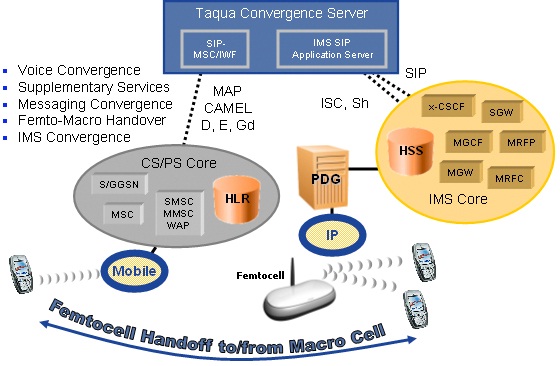Small cells have been making big strides as of late in the mobile backhaul market, particularly generating headlines over the last couple of weeks regarding future projections for the next four years. Most recently, Infonetics (News - Alert) Research released its latest report predicting the small cells market to reach three million units in 2016. With a large demand for necessary capacity upgrades being made to urban areas, it’s no surprise that the demand for small cells in underserved areas will only continue to increase.
Digging even deeper, an ABI Research report, suggests that in 2014, LTE (News - Alert) small cell shipments will surpass LTE macro base station shipments. As the demand for mobile backhaul solutions in urban areas increases, small cells have become the more cost-effective and efficient solution for service providers in the market today to provide to its residential and commercial customers.
As mobile operators look to evolve their fixed mobile convergence offerings, network capacity challenges become inevitable with smartphone and data-intensive mobile usage continuing to increase at an uncontrollable rate. Small cell and mobile backhaul provider, Taqua (News - Alert) created its Femtocell Convergence solution to address this growing concern for mobile operators.

Taqua’s small cell core network is comprised of Taqua’s TCS6100 Convergence (News - Alert) Server, T7100 Multimedia Controller, and the T7000 Intelligent Switching System with mobile interface cards; as well as an integrated session border controller and security gateway from Acme Packet (News  - Alert).
- Alert).
The small cell solution offered by Taqua enables mobile operators’ femtocell strategies to deliver a higher level of coverage extension in either pre-IMS or IMS environments, which allows mobile operators to deploy IP/SIP based femtocell devices in exiting and mobile networks. With Taqua’s small cell network, operators can also provide triple and quadruple bundling while at the same time reducing network costs using IP networks and reducing load on the mobile core network.
Small cells not only provide services such as voice, SMS, MMS, home number routing, mobile TV, multimedia downloads, etc., but they also enable security equivalent to macro cell networks to femtocells at a much lower cost. Taqua’s femtocells support standard supplementary services in any environment and support handover between femotocell and macro cell networks, according to the company.
Edited by Juliana Kenny
 Internet Telephony Magazine
Click here to read latest issue
Internet Telephony Magazine
Click here to read latest issue CUSTOMER
CUSTOMER  Cloud Computing Magazine
Click here to read latest issue
Cloud Computing Magazine
Click here to read latest issue IoT EVOLUTION MAGAZINE
IoT EVOLUTION MAGAZINE




